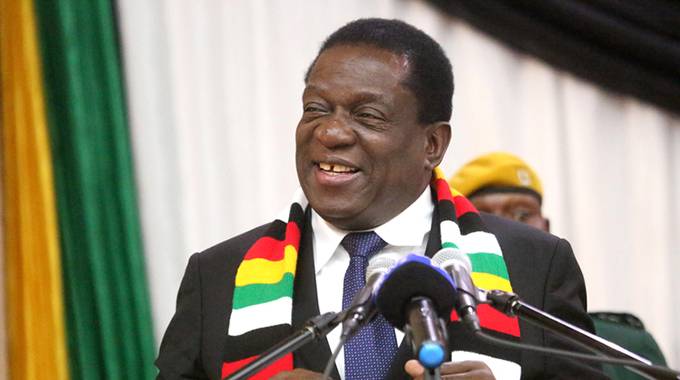EDITORIAL COMMENT: Harare gives first impressions of Zim

It is the morning after the swearing-in of the new Cabinet following the elections of July 30 and related policies in the unfolding story of Zimbabwe’s transition.
No doubt, the overwhelming national mood is that of wanting to see Zimbabwe work — something that should be weighing heavily on the shoulders of President Mnangagwa and his team.
That has been well emphasised.
There is, however, something of great symbolic value that we want to bring to the attention of authorities as Zimbabwe begins the long process of building and growth.
Harare, the capital city, should be the face of this transformation. As we make this averment, Harare presents to the world a face that tells of a degenerate, chaotic, ugly and disorganised slum city as though Zimbabwe had gone through an apocalypse.
There is lawlessness in the central business district (CBD) where vendors, illegal taxis and kombis have taken over the city’s main thoroughfares.
Many commentators have likened the situation to a jungle. We all know that in a jungle it’s survival of the fittest, hence the chaos and fight over space.
What we see on those streets is a function of a lawless state of mind, not necessarily a function of the economy, however bad it has been.
A man or woman who decides to light an open fire to roast maize in the First Street Mall is not necessarily pushed to do that by poverty.
That same man or woman could still make the fire elsewhere where it is permissible and still get the buyers who should know better where to find roast mealies.
The business of roasting and selling mealies is not a new endeavour: many would relate to that enterprise and the consumption of that particularly Zimbabwean delicacy has also been there for ages.
Only there were places that you would find roast mealies. That is, but a small picture.
The whole enterprise of informal trade, from fresh vegetables to second-hand clothes, ought to be regulated and a lasting solution must be found as a matter of priority to bring order to the city.
Ditto public transportation which has been dominated by brigands of pirate taxis and kombis.
In this regard, we reject the reductionist idea that what we witness on function of poverty as the transport sector becomes a major employer. Poverty does not necessarily lead one to break the rules of the road. Or to be rude to other motorists.
Again, this is a state of mind.
Common sense tells us that rules must be obeyed. A lasting solution must be found to address this wayward behaviour.
Elsewhere, the city’s infrastructure was allowed to slowly crumble. The systems have become dysfunctional.
Typically and if we take the imagery of the apocalypse further, diseases such as cholera are ravaging communities and killing the innocent. It is depressing. But there is hope that things can get better.
This is the task of the new Government and the local authority running Harare. Harare City Council is opposition dominated and a new mayor from the opposition was elected last week, signalling the start of work for the local authority.
We urge central Government and Harare to work closely in implementing policies that will turn Harare into a modern city. It is the face of the country. Harare belongs to all of us. Its degeneration, outlined in part above, affects us all.
Tackling the many apocalyptic evils will require that authorities rise above politicking. We have previously seen a lot of political football around the issue of vendors, for example, as political interests have clashed on the way forward.
We hope that common sense will this time prevail to modernise Harare as the face of a new Zimbabwe. Bringing order to the city should not be interpreted in a dishonest manner as an attack on poor people. Order should prevail.
Minister July Moyo, give us the capital city we want.









Comments